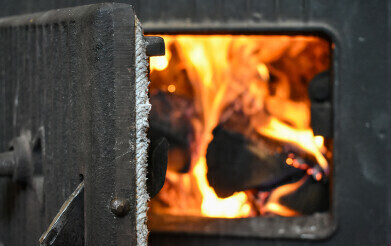Air clean up
New data shows over 50% of coal boilers in Poland will be replaced by heat pumps by 2030
Dec 21 2023
The European Clean Air Centre (ECAC), a leading independent think-tank, has released a landmark report showing that a heat pump revolution is underway in Poland that will slash harmful air pollution and significantly reduce mortality rates.
The report, titled " Poland’s Journey to Clean Air and AAQD Compliance by 2030" shows that the country is on track to increase the number of people breathing clean air from 2 million today, to 30 million people by 2030, representing a remarkable 15-fold increase in just six years. The improved air quality is a result of the systematic replacement of coal boilers for heat pumps. Modelling shows that based on current replacement rates, heat pumps will have replaced 50% of coal boilers by 2030. The dramatic increase in heat pump use would help prevent 21,000 premature deaths annually, particularly in densely populated regions like Silesia and Mazovia.
The report comes as the EU revises its Ambient Air Quality Directive, which sets the rules for the levels of air pollution across the EU. According to the modelling in the report, Poland, currently one of the most polluted EU countries, can meet the European Commission’s proposed targets in the revised Ambient Air Quality Directive (AAQD). The analysis coincides with new Polish Minister for the Environment and Climate, Paulina Henning-Kloska, attending her first meeting with EU environment counterparts to discuss the legislation.
These findings, however, sharply contrast with the efforts of EU Member States to weaken the proposed AAQD legislation, with sweeping derogations which would allow countries to delay the implementation of updated air quality rules by over a decade, leading to avoidable premature deaths. The proposed derogation would apply as a matter of right to Member States with a lower-than-average GDP per capita, whereas Member States above the EU average would need to prove that the targets were technically unachievable. The blanket derogation based on GDP would mean over 240 million people in 16 lower-income EU countries would still be exposed to harmful air pollution for another 10 years.
Commenting on the report’s publication, ÅÂÂukasz Adamkiewicz, President of the ECAC said that “Poland’s coal boiler replacement programme is an example of what ambitious environmental policy can mean for normal people. Our analysis shows that 2.7 million households will replace their heating source and with refurbishment of buildings, this will lead to a more secure, cheaper and cleaner energy source across the country, a triple win. Poland should be seen as an example of what can be done in Europe with the right policy in place”.
Further commenting on the report, Agata de Ru, Head of EU for Clean Air Fund said that “Poland’s case proves that ambitious WHO guidelines are attainable if the country’s leadership puts their mind to it. It’s also a strong case for an ambitious Ambient Air Quality Directive, specifically regarding the 2030 targets. Modelling clearly shows that Poland - one of the most polluted countries in the EU - can achieve the WHO’s IT4 air quality guidelines by 2030. If Poland - a country with a GDP below the EU average - can achieve the WHO’s guidelines, most other European countries can do it too. EU leaders should ensure that residents of lower-income Member States are not deprived of the right to clean air. Under the derogation request by the Member States, it would be as if hospital patients with the most urgent need were attended to last”.
Events
Apr 08 2025 Targi Kielce, Poland
Apr 08 2025 Bahrain
Apr 10 2025 Beijing, China
Apr 10 2025 Beijing, China
Apr 15 2025 Moscow, Russia














